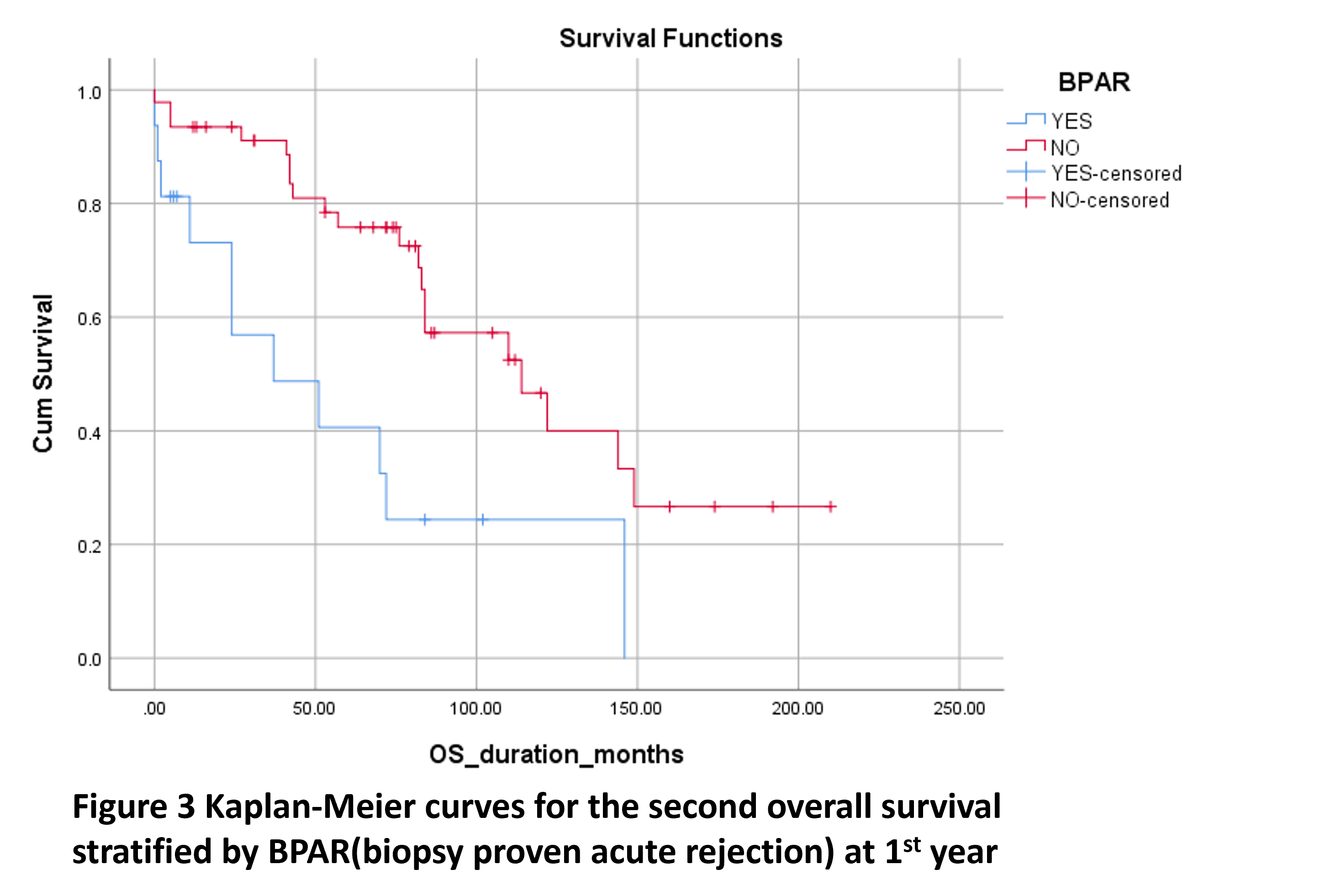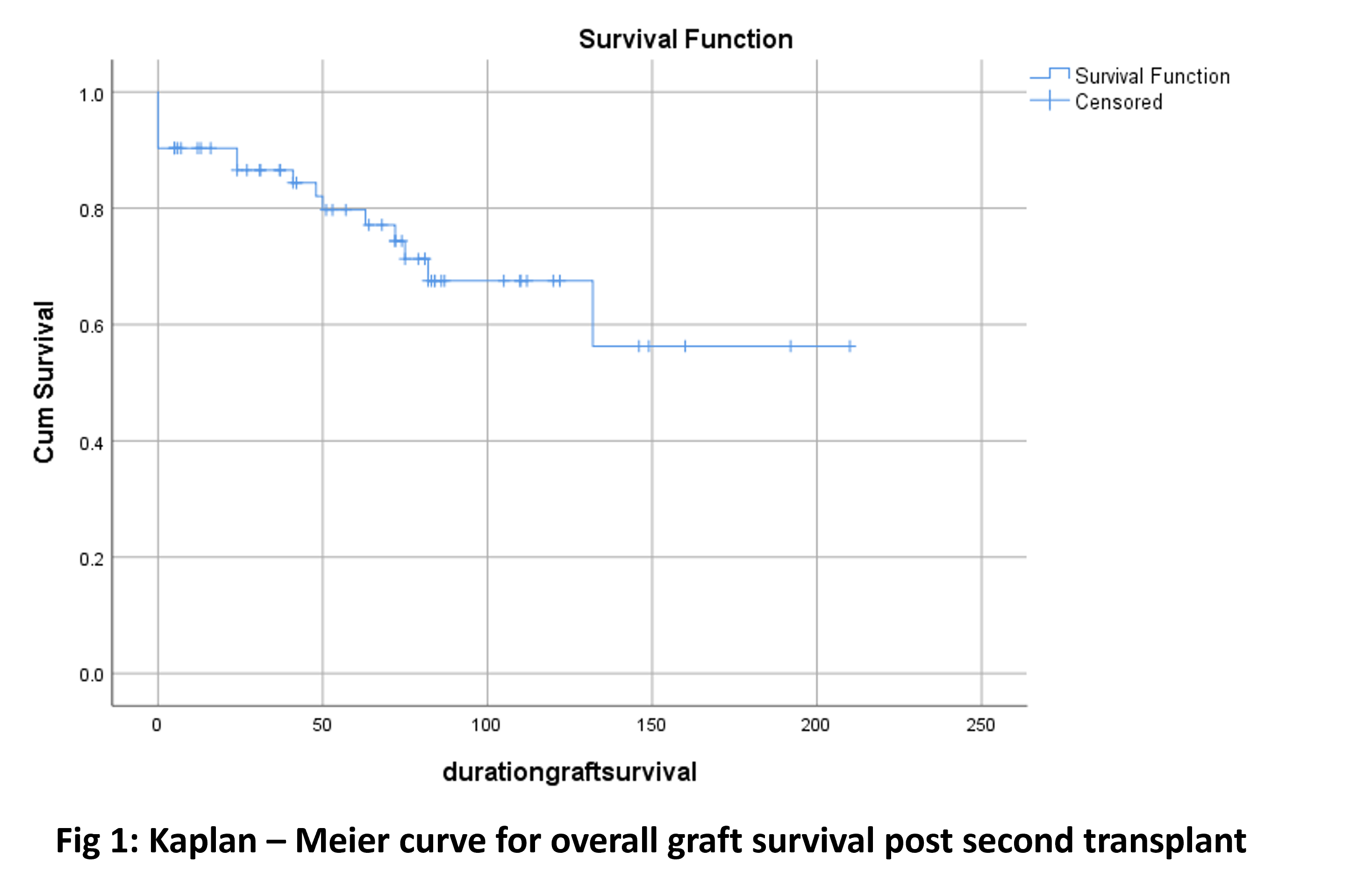Second kidney transplant: A single centre retrospective cohort study from north India
Mugdha Sathe1, Jeyakumar Meyappan1, Anupma Kaul1, Narayan Prasad1, Dharmendra S Bhadauria1.
1Nephrology, Sanjay Gandhi Postgraduate Institute of Medical Sciences, Lucknow, India
Introduction: Re-transplantation is associated with 50% reduction in mortality as compared to being on dialysis. Hence, increasing number of second kidney transplants are being carried out in most parts of the world, especially in India. The presentation of experiences from kidney transplantation centre in LMICs is limited and may help enrich the literature on kidney retransplantation, as a specific topic in the field of kidney transplantation.
Methods: This was a single-centre retrospective study performed at a tertiary health-care centre in India. All second transplant cases, both ABO compatible and incompatible, performed between January 2004 and December 2023 were included. Baseline characteristics were reported as mean values ± standard deviation. Continuous variables were compared using unpaired t-test while categorical values were compared using Chi-square test or Fisher's exact test. The survivals of patients and second grafts were described using Kaplan-Meier curves and groups were compared using the log-rank test. P < 0.05 was considered as statistically significant. Complications such as biopsy proven acute rejections at 1st year, serious infections requiring hospitalisations, chronic renal allograft injury at 1st year were also recorded. Statistical analysis was done using IBM SPSS Statistics for Windows, Version 26.0, IBM Corp.
Results: Between January 2004 and December 2023, a total of 62 second kidney transplants were performed, of which 13 were ABO incompatible transplants. Median follow-up duration was 71 (0-210) months. The mean age was 42.2 years ± 9.1 years, with 91.9%(n=57) patients being male. Recipients spent a median time of 9.5 (1-60) months on dialysis after 1st graft loss till the receipt of second renal transplant. Of the total 62 transplants, 29 were spousal donors, 26 were either parent or sibling donors, and 7 were unrelated. Seventy two percent (n=45) recipients received ATG induction, 27% (n=17) received IL2 receptor inhibitor – basiliximab or daclizumab. Pre-transplant flow cross match was positive in 4.8% patients. Patient survival at 1 year, 3 years and 5 years was 88%, 81.2% and 67.6% respectively with median duration of survival being 104 months. Death censored graft survival at 1 year, 3 years and 5 years was 90%, 84.4% and 77% respectively.

Biopsy proven acute rejections at 1 year post-transplant were found in 16 patients of which 13 had acute antibody mediated rejection. Overall survival was significantly lower in patients with BPAR at 1st year post-transplant.

Sixty-three percent patients had serious infections requiring hospitalisation during the study period. Till the end of the study period, 34% (n=21) patients had died with sepsis being the most common cause of death (n=15, 24.2%).
Conclusion: Second kidney transplant can be a viable option for failed first kidney transplant patients with improved overall survival as compared to dialysis.
Dr. Deep A. Gala.
[1] second kidney transplant
[2] biopsy proven acute rejection
[3] death censored graft survival
